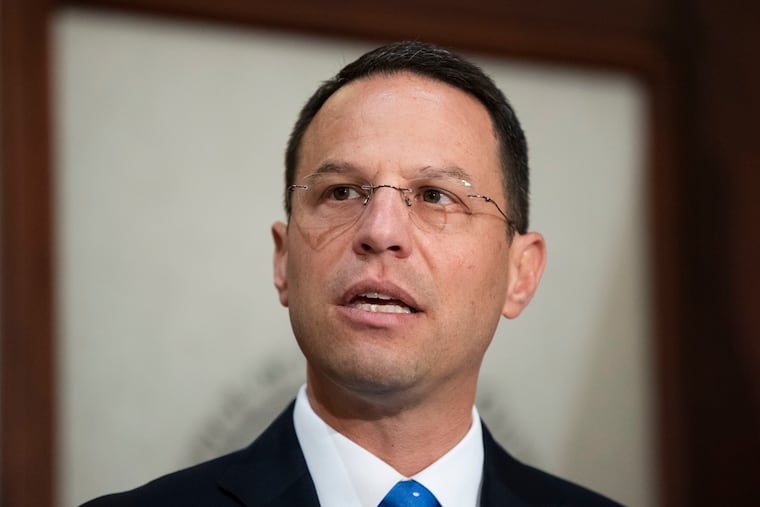Pa. Attorney General should withdraw from T-Mobile-Sprint lawsuit | Opinion
Josh Shapiro has an opportunity to choose whether Pennsylvania will embrace the coming changes or fight the changes like a Luddite.

Two events will occur this month that promise to have a major impact on mobile phone service for years to come, and Attorney General Josh Shapiro has an opportunity to choose whether Pennsylvania will embrace the coming changes or fight the changes like a Luddite.
The two events will occur on December 6 and 9. On December 6, T-Mobile, which is finalizing its merger with Sprint, will launch the first phase of its 5G service nationally. Notice the word “nationally.” The other major carriers’ 5G launches pale by comparison. Verizon is in about 20 cities with 5G, and only in portions of those cities, none of which is in Pennsylvania. Verizon seems to have forgotten its Bell Atlantic roots. Cities as small as Sioux Falls and Little Rock have Verizon 5G, but not Philadelphia or Pittsburgh, each of which is more than five times as large. In some cases, 5G will be made available only to business customers.
T-Mobile’s December 6 launch, by contrast, will cover more than half of the entire U.S. population: an estimated 200 million persons. Its coverage in Pennsylvania will be spotty at first, as is all the early 5G coverage from all the mobile carriers, but the initial T-Mobile footprint is so much larger than Verizon’s that it bodes well for future coverage, especially in Pennsylvania’s rural areas. T-Mobile uses lower frequencies that have longer range wave propagation, an important factor in covering rural areas.
T-Mobile’s rollout will also include several other features that will benefit consumers in Pennsylvania, as well as first responders. The company will offer $15 monthly plans for 5G service, lower than any competitor pricing. T-Mobile has also announced free 5G wireless service for all law enforcement and first responders. This free service will be a great benefit to those brave men and women who serve our communities, allowing them to do their jobs more effectively and benefiting all of those who they serve and protect.
December 9 will mark the beginning of a major legal case to stop this merger.
This case is being brought by the politically ambitious Attorney General of New York, Letitia James, and has been joined by 17 other state AGs, including Pennsylvania’s AG Josh Shapiro. These state AGs have sued to stop the merger, despite its approval by the Department of Justice and the Federal Communication Commission. The list of state opponents has shrunk by four in recent weeks, with the subtraction of Texas, Nevada, Colorado, and Mississippi.
Pennsylvania would be wise to do the same while there is still time. The merger would result in three strong and aggressive competitors. Blocking the merger, in contrast, could easily result in only two major carriers, Verizon and AT&T, if Sprint and T-Mobile are unable to raise enough capital to fund 5G expansion as smaller, separate companies. A Verizon-AT&T duopoly should be of much greater concern than the emergence of three roughly equal-size competitors, along with a fourth government-mandated competitor employing satellite technology (one already agreed-upon element in the T-Mobile-Sprint settlement with the Justice Department).
Pennsylvania has a solid but diminishing opportunity to ensure the new merged company prioritizes our state for full 5G service. The time to exercise that leverage is now. Attorney General Shapiro should negotiate Pennsylvania’s timely withdrawal from the New York AG’s suit against the T-Mobile-Sprint merger.
Colin A. Hanna is president of Let Freedom Ring, a public policy non-profit promoting constitutional government, economic freedom and traditional values. Hanna served as Chester County Commissioner from 1995-2003 and lives in West Chester.